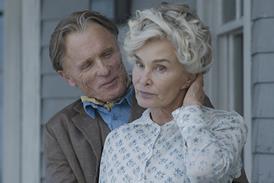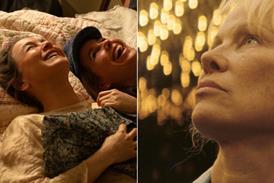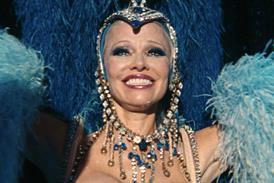Dir. Rudolf Thome. Germany. 2003. 112mins.
Veteran German director Rudolf Thome is back with another one of his meticulously over-scripted, exceedingly polite and talkative dramas. Like much of his previous work, such as Venus Talking and Paradiso: Seven Days With Seven Women (which won the Silver Bear at Berlin in 2000), it will find a niche on the international circuit, but its best bet, beyond that, is the television screen for which its seems made. The encounter between an independent German woman immersed in her career and her estranged daughter, who she gave away as a baby to her Turkish husband after their divorce, has all the earmarks of a thoughtful reflection on various problems relevant to modern German society. But Thome's treatment is so controlling that it is hard to believe his characters have a mind of their own, capable of entering anything like an authentically dramatic situation. Academy Films will release the film in Germany later this year.
The daughter of a rich German-naturalised Turkish (but German-naturalised) carpet merchant, Ilke (Turhan), returns to Germany after her father's death to find her mother, who she never really knew. Mum Barbara (Elsner) has her own business, which is not doing too well, and has two children by her second marriage to a computer consultant, which is growing stale on her. Using a private detective (Zischler) who worked for her father, Ilke finds and meets her mother, but first acquires a flat, buys a convertible and establishes her identity as wealthy heiress, just to dispel doubts that she is another destitute immigrant looking for work in the West.
The film, in attempting to deal with Barbara's position as an independent woman torn between career, family duties in general and motherhood in particular, gently moves towards an inconclusive ending that suggests there is no perfect solution: the people around her will have to accept her on her own terms, as long as they want her around. Thome is also interested in other issues, such as cultural and generational confrontation, but prefers mentioning them in passing rather than exploring them in depth.
All this could have been perfectly edifying if Thome had not manipulated every detail of the plot, leaving it impossible to take seriously. For example, the three people Ilke accidentally meets on the train to Berlin later turn out to be her future landlady, her potential boyfriend and her mother's second husband. Not trusting this visual information, Thome feels the need to repeat it again verbally.
Then there is the montage that cuts from Ilke finding her way in the city to Barbara going to her country home to burn down the past (in case there are any doubts about the significance of the bonfire, she spells it out later in so many words), implying the link between them long before it is re-confirmed by the dialogue itself. Discovering the kindly detective, Ilke's guardian angel, is Barbara's first sweetheart, is also pretty farfetched. There are possibly also too many appearances from products such as Opium and Jack Daniels.
Lots of dialogue, clear, carefully framed camera work and the use of title cards between scenes evoke Eric Rohmer to some extent, but that is as far as the resemblance goes. The ponderous pace and the tendency to draw scenes out beyond their natural length suggest a shorter cut would have accommodated the material better.
Elsner does too much to show how interesting Barbara is supposed to be, while Turhan fails to do enough to establish a sufficiently strong presence of her own. Zischler tries to go beyond the stereotype he is entrusted, but his success is partial at best.
Prod co: Moana Films
Int'l sales: Cine-International
Ger dist: Academy Films
Prod/scr: Rudolf Thome
Cinematography: Michael Wiesweg
Ed: Doerte Voeltz
Prod des: Susanna Cardelli
Music: Heide Hans
Main cast: Hannelore Elsner, Serpil Turhan, Hans Zischler



















No comments yet